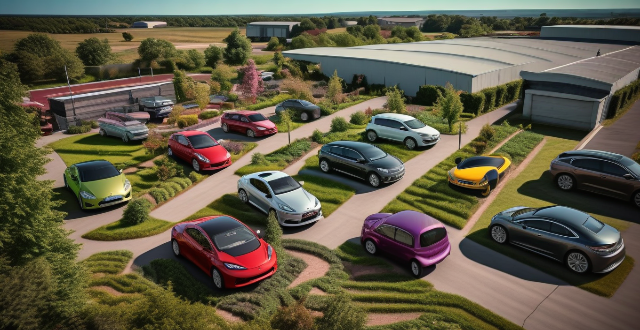Luxury car sales are expected to grow in the next few years, driven by rising incomes, changing consumer preferences, and technological advancements. Key drivers include increasing disposable income, a shift towards comfort and advanced features, and the integration of autonomous driving technology and electric powertrains. However, challenges such as economic uncertainties, increased competition, regulatory changes, and technological obsolescence may impact sales.

Outlook for Luxury Car Sales in the Next Few Years
Luxury car sales have been on an upward trajectory in recent years, and this trend is expected to continue in the next few years. The global luxury car market is projected to grow at a CAGR (Compound Annual Growth Rate) of around 5% from 2020 to 2025. This growth can be attributed to several factors such as increasing disposable income, changing consumer preferences, and advancements in technology.
Key Drivers of Luxury Car Sales
1. Increasing Disposable Income: As more people become wealthier, they are able to afford luxury goods like high-end cars. This trend is particularly evident in emerging markets where there has been a significant rise in the number of millionaires and billionaires.
2. Changing Consumer Preferences: Consumers are increasingly looking for vehicles that offer comfort, convenience, and advanced features. Luxury cars often come equipped with cutting-edge technology, making them attractive to buyers who prioritize these attributes.
3. Advancements in Technology: The integration of autonomous driving technology, electric powertrains, and advanced infotainment systems into luxury cars has made them even more appealing to consumers. These technological advancements are likely to continue driving demand for luxury vehicles in the coming years.
4. Environmental Concerns: As awareness about climate change grows, more consumers are looking for eco-friendly options when purchasing a car. Many luxury car manufacturers have started producing hybrid or fully electric models to cater to this segment of the market.
5. Brand Loyalty: Luxury car brands often have a strong following due to their reputation for quality, reliability, and prestige. This brand loyalty helps maintain steady sales even during economic downturns.
Challenges Faced by Luxury Car Manufacturers
Despite the positive outlook, luxury car manufacturers face several challenges that could impact their sales in the future:
1. Economic Uncertainties: Global economic conditions, such as recessions or trade wars, can negatively affect consumer spending on luxury items like cars.
2. Increased Competition: As more companies enter the luxury car market, competition becomes fiercer, potentially leading to price wars and reduced profit margins.
3. Regulatory Changes: Government regulations regarding emissions and safety standards can impose additional costs on manufacturers, affecting the final price of luxury cars.
4. Technological Obsolescence: With rapid advancements in automotive technology, some luxury cars may quickly become outdated, reducing their appeal to buyers seeking the latest innovations.
Conclusion
The outlook for luxury car sales over the next few years appears promising, driven by factors such as rising income levels, evolving consumer preferences, and technological advancements. However, manufacturers must navigate challenges related to economic uncertainties, increased competition, regulatory changes, and technological obsolescence to maintain their market position and ensure continued growth in sales.